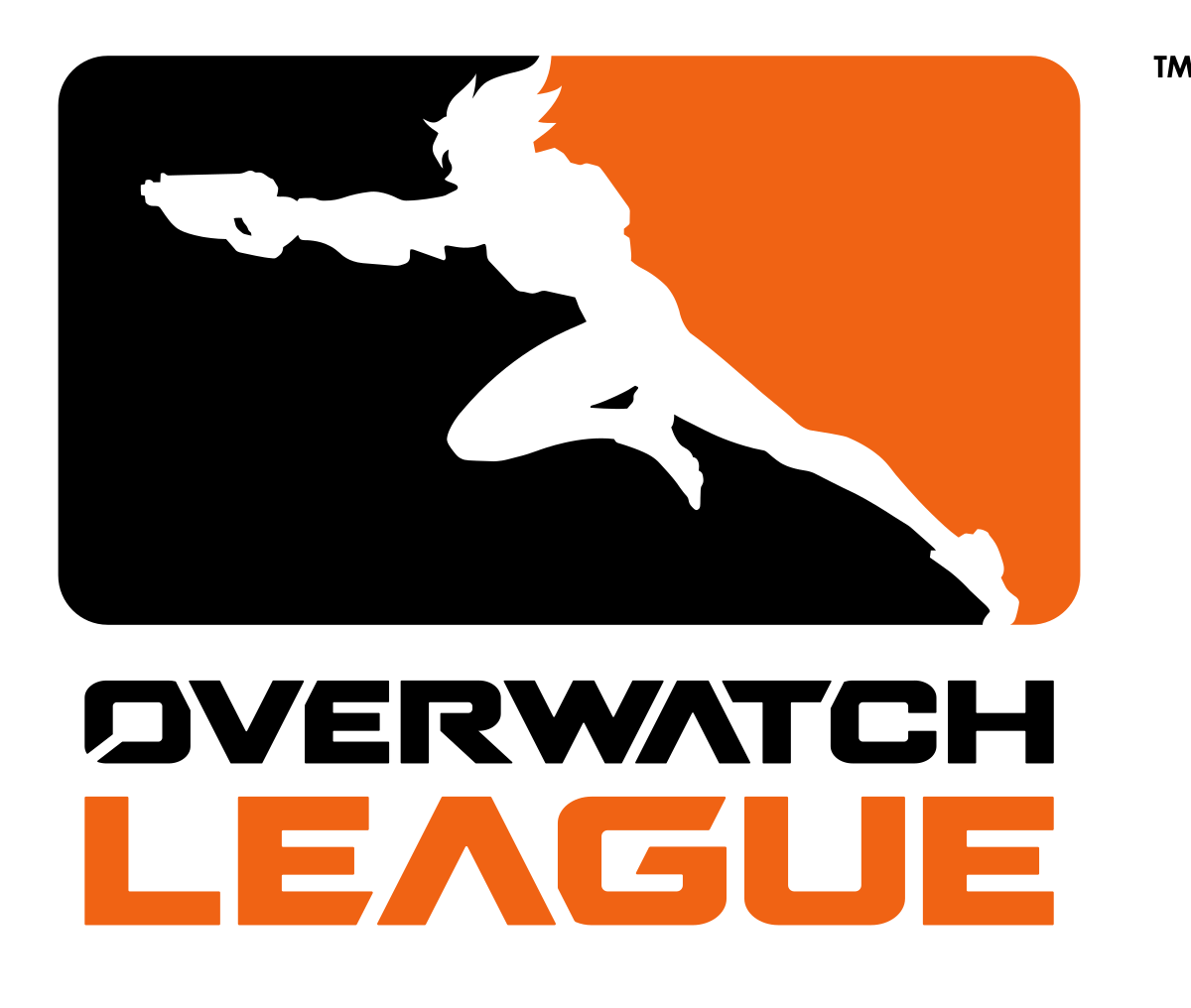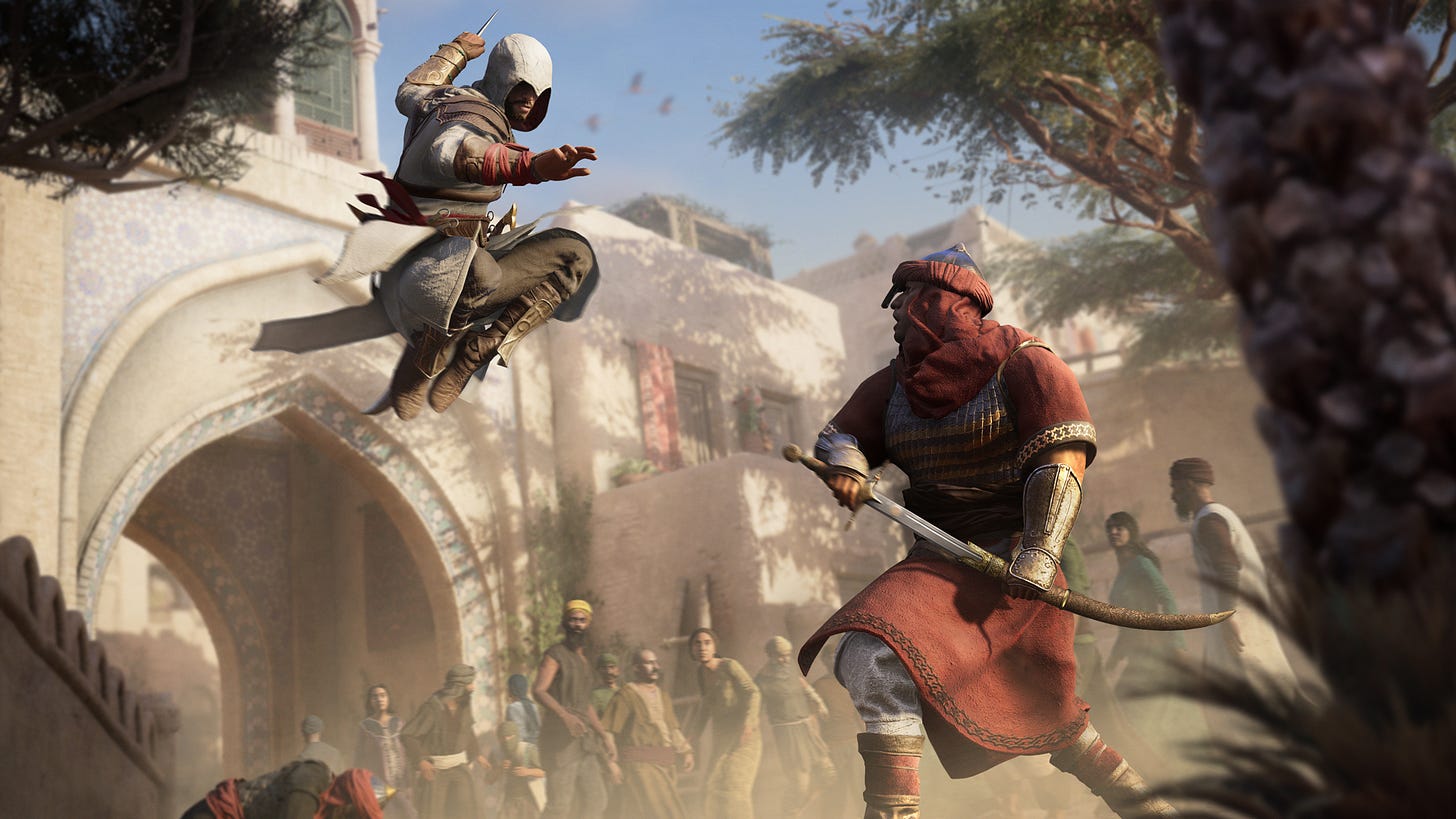Games Industry Stunned By Mass Lay-Offs: Video Games Industry Memo, 05/10/2023
Lay-offs smash through UK games industry as release glut, inflation and bad decisions bite
Industry left reeling after lay-offs at Epic Games, Creative Assembly and Team 17.
The Overwatch League is over, according to reports.
Assassin’s Creed series heads to Baghdad in latest release.
The big read - Games industry bloodbath as job losses hit Creative Assembly, Epic Games and Team 17.
Decimation. The moveable sign at Mediatonic was rearranged to read this last week after it, and a number of UK games businesses, were smashed by a wave of lay-offs which have stunned the sector at large.
Over the past seven days, the axe has fallen at Creative Assembly, Team 17 and Epic Games in dramatic and unpleasant style. It has sparked consternation and a desperate attempt to rescue the staff affected. And, rather grimly, it forms part of a wider global pattern which has resulted in thousands of lay-offs across dozens of businesses across the world.
So, why has this happened? While it is undoubtedly partly a result of our tough macroeconomic landscape, the fact is that 2023 is a peculiarly difficult year for the industry. And this has created a perfect storm through which companies have struggled to sail through unscathed.
Macros, Man
Before we go into the industry specifics, we have to acknowledge that the games industry has not proven immune to the two major macroeconomic difficulties facing the global economy as a whole.
Rampant inflation and the counterbalancing rise in interest rates has applied a general squeeze on the sector in a couple of key ways.
First, laggard wage inflation has a greater impact on the games industry because companies invest a large proportion of their costs into headcount.
In August 2023 in the UK, for example, consumer price inflation ran at 6.3% while wages grew by 7.8% as employers and employees caught up with previous increases last year.
With games companies having to put comparatively more of their cash into hiring “skilled” staff - as evidenced by Ukie’s 2022 diversity census exploring educational backgrounds - the impact of wage inflation on businesses heavily invested in people, such as games businesses, is disproportionately higher: bumping headcount costs up significantly as wider costs stack up quietly too.
Second, rising interest rates have taken the wind out of the investment market. With the era of “free money” over, investment in the games industry has tanked from $28bn in H1 2022 to $0.9bn to H1 2023. This has removed both an engine of expansion and a possible safety net - complicating the landscape further.
But while these big picture developments have undoubtedly provided a squeeze on the sector, neither is enough by themselves to cause such a shift.
While inflation is a pain, the global games market is broadly keeping pace with inflation with forecast growth of 6.3% year-on-year. And although investment has collapsed, games businesses in general are slightly less exposed to this than the tech sector because fewer companies rely solely or partly upon venture capital for growth.
So to understand what’s happening in games, we need to look more closely at the microeconomic factors affecting the industry.
Micro machinations
And when we do, we see something fundamentally important: 2023 is the year that the games industry, finally, is feeling the impact of the pandemic.
Now I know what you’re thinking: didn’t the games industry thrive in Covid? During the early days of the pandemic, it definitely did. It generated record revenues as people stayed indoors, kept calm and spent their hard earned work from home cash on entertainment that supported social interaction from afar.
But while the pandemic provided short term gain, it stored up two long term problems for the sector.
The first is that it slowed the pace of game development down. While it didn’t lead to a total shutdown as seen in film and TV, the shift to remote working did impact the pace of development on a range of releases. This led to the need to delay games: increasing development costs as a result of projects extending and creating a traffic jam of games that needed to launch.
And second, Covid led, pure and simply, to a bubble around the sector. Investors and executives poured cash into games projects partly to reflect the value of the industry but, in many cases, mostly due to an over-estimation of its value. Unproven long-shots such as the metaverse, Web3 and esports therefore received much more money than they should have done, while financial expectations of traditional games businesses inflated above where they should have been.
These two factors, combined with the wider market conditions, has led to what one video game executive described to me as “a killing field” for games companies.
The traffic jam of releases turned into a full blown car-crash in 2023. Delays to games such as Starfield, Hogwarts Legacy, The Legend of Zelda: Tears of the Kingdom and Baldur’s Gate 3 added to an already busy year for releases. While the biggest titles sold, and continue to sell well, the intense competition has forced enormous numbers of developers to both reduce prices - damaging their position in the market significantly.
And with expectations of the market already either set too high (e.g. Fortnite revenues underperforming) or unrealistically pegged to developing technology, investment tumbled harder than it likely should have done - dragging companies under the line.
The result has been rarely seen levels of lay-offs, cutbacks and cancellations in the sector that the industry will take some time to recover from.
From buck-passing to buck-stopping
So, 2023 has been a brutal year for the industry. The question is whether the industry can avoid another bloodbath like this in the years ahead.
Structurally, it should be equipped to avoid another. The release pile-up is coming to an end; inflation is easing ahead of a likely big release for console hardware in 2024; even the end of “free money” may not be bad for a sector that has, historically, had to sing for its supper anyway.
But equally, those structural advantages will only become apparent if industry leadership is able to take them.
While the industry has been rocked by some uncontrollable factors, the reality is that too many bad bets - such as Embracer over-extending itself without Saudi investment and causing a ripple effect through the market or Tim Sweeney going big on the metaverse to undermine Epic Games’s wider strong performance - made a challenging situation worse.
And with these decisions impacting thousands of people across the world, we hope that industry executives remember that the buck must always stop with them.
News in brief
OWL’s Moving Last Games: The downward spiral of the Overwatch franchise continues with the ending of the Overwatch League (OWL) this week. While it is reported that Activision Blizzard is looking at other ways to make the game a go-er, the lack of return on a comparatively hefty investment raises questions.
Machiavellian?: The International Esports Federation has become the first video games adjacent body to appoint a prince to its leadership group. HRH Prince Faisal bin Bandar bin Sultan Al Saud, a member of Saudi Arabian’s royal family, has just been appointed head of the federation in a move we describe as…interesting.
Former Ubisoft execs arrested: Five ex-Ubisoft executives have been arrested as a result of an investigation by French police into sexual harassment at the studio reported in 2020. The scandal rocked the sector, sparking global outrage.
You only sing when your spending: As predicted in last week’s VGIM, EA Sports FC 24 has done gangbusters - despite the name change. As we didn’t predict, but really should have done, a new monetisation tactic in Ultimate Team is causing controversy amongst the player base already.
Expansion Whacked: Screen Australia has announced three new funds to support emerging talents, established creators and future leaders down under. Bu by doing so, we have to say a hearty RIP to its predecessor and best named video games funding initiative in the world to date. Games: Expansion Pack, you were reformed too soon.
Ins and outs
Given the news, I’m giving ins and outs a miss for this week. Normal service to resume in the next VGIM.
Events and conferences
EGX, London - October 12th - October 15th
GamesAid Gala Dinner, London - October 19th
Scottish Games Week, Across Scotland - 30th October - 3rd November
Paris Games Week, Paris - 1st November - 5th November
Golden Joysticks, London - 10th November
Games to watch this week
Assassin’s Creed Mirage - Very much real entry in Ubisoft’s long-running stab ‘em up series takes players to Baghdad.
Wargroove 2 - Sequel to Advance Wars-lite tactical RPG hits digital shelves on Friday.
Detective Pikachu Returns - Uncover the mystery of Ryme City in this Pokemon themed crime caper (note: Ryan Reynolds not present).
Disgaea 7: Vows of the Virtueless - Reportedly most accessible entry in long running JRPG creeps out today.
Before you go…
A selfish announcement! Next Tuesday, I am publicly announcing VGIM to the world. I’d therefore love for you to share VGIM with friends, colleagues and connections before then.
If you think you know someone who would benefit from receiving a weekly explainer of all things interesting in games, please hit the share button below.






